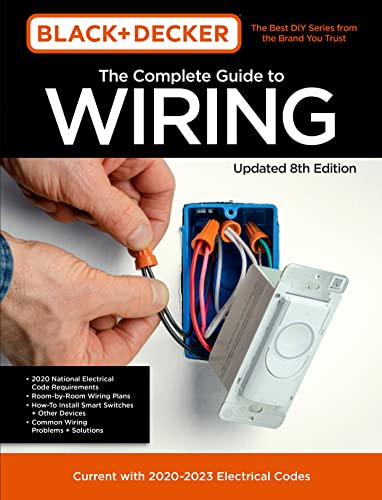10 Electrical Engineering Books That Separate Experts from Amateurs
Discover books recommended by Kevin Kelly, inventor Hans Camenzind, and author Tom Igoe that unlock practical and theoretical insights in Electrical Engineering.

What if the secret to mastering Electrical Engineering lies in the books you haven't picked up yet? This field powers everything from your phone to the grid, yet many find its core concepts elusive. As technology evolves, so does the need for fresh perspectives and practical knowledge tailored to today's challenges.
Experts like Kevin Kelly, who calls "Make" a "magnificent and rewarding book," appreciate resources that combine clarity with hands-on learning. Hans Camenzind, inventor of the 555 timer, praises texts that teach "at their best," while Tom Igoe, known for his books on physical computing, highlights the importance of disarming fear through accessible writing.
While these expert-curated books provide proven frameworks, readers seeking content tailored to their specific experience level, career goals, or niche interests might consider creating a personalized Electrical Engineering book that builds on these insights.
Recommended by Kevin Kelly
English commentary expert and tech author
“A magnificent and rewarding book. ... Every step of this structured instruction is expertly illustrated with photos and crisp diagrams. . . . This really is the best way to learn.”
by Charles Platt··You?
Make: Electronics is a hands-on introduction to the fundamental components that form the backbone of circuit design. Charles Platt, a longtime electronics enthusiast and Make magazine columnist, draws from his decades of experience to demystify resistors, capacitors, transistors, and more, providing clear explanations alongside practical advice on tools and supplies. You’ll gain a solid grasp of how discrete components work and interact, even if your focus includes microcontrollers. The book’s learning-by-doing approach, supported by detailed photos and diagrams, suits anyone eager to build confidence through experimentation rather than abstract theory.
by Turan Gonen··You?
by Turan Gonen··You?
Unlike most electrical engineering texts that broadly cover power systems, Turan Gönen's Electric Power Distribution Engineering zeroes in on distribution systems with unmatched depth. Drawing on decades of experience, Gönen offers detailed numerical examples, MATLAB® applications, and new chapters on renewable energy, smart grids, and energy storage, providing you with practical insights into modern distribution design and reliability. The book thoroughly defines industry terms and emphasizes economic considerations alongside technical analysis, making it particularly valuable if you're studying or practicing distribution engineering. However, if your focus is outside distribution systems, this specialized text may be less relevant.
by TailoredRead AI·
by TailoredRead AI·
This personalized framework in electrical engineering circuits provides foundational principles alongside practical applications tailored to your engineering background and objectives. It develops a clear methodology for analyzing, designing, and troubleshooting circuits, integrating both analog and digital components relevant to your field. The tailored approach cuts through irrelevant advice by focusing on the circuit topics and techniques that align with your proficiency and career goals, such as signal processing, circuit simulation, and component selection. By addressing context-specific challenges, it bridges theoretical concepts with hands-on implementation, enabling you to build effective circuit solutions that suit your unique engineering environment.
by Mohamed A. El-Sharkawi··You?
by Mohamed A. El-Sharkawi··You?
When Mohamed A. El-Sharkawi first recognized the growing importance of renewable energy and smart grids, he crafted this book to reshape how electric energy is taught to engineering students. You’ll gain a clear understanding of key topics such as energy resources, power plants, and environmental impacts, alongside foundational subjects like transformers and power electronics. The book bridges traditional electromechanical concepts with modern issues like power quality, blackouts, and future power systems, using real examples and updated data. If you’re studying or working in electrical or mechanical engineering, it offers a broad yet detailed perspective to prepare you for evolving challenges in electric energy.
by Charles R. Miller··You?
by Charles R. Miller··You?
What started as Charles R. Miller’s deep involvement in the electrical trade and education became a practical manual tailored for electricians and DIY enthusiasts alike. Drawing from decades of hands-on experience and his background owning an electrical company, Miller delivers a concise reference that translates the 2020 National Electrical Code into accessible wiring rules and diagrams. You’ll find detailed coverage on topics like grounding, conduit fill, and circuit types that help keep residential wiring projects both code-compliant and efficient. This book suits professionals needing quick access on the job as well as homeowners wanting a reliable guide for safe electrical work.
by Gregory W Fletcher··You?
by Gregory W Fletcher··You?
What if everything you knew about residential wiring was challenged? Gregory W. Fletcher, drawing from over 30 years in the electrical field and his roles in education and inspection, offers a detailed examination of house wiring grounded in the 2017 National Electrical Code. You gain not just theory but thorough practical understanding, including sustainable building practices and alternative energy systems, with vivid illustrations and chapter features that reinforce core wiring concepts. This book suits those stepping into residential electrical work who want both foundational knowledge and an eye on modern industry standards, rather than casual DIYers or advanced engineers.
by TailoredRead AI·
by TailoredRead AI·
This personalized book offers an in-depth engineering analysis of electrical power distribution systems, focusing on system design, component selection, and operational optimization. It provides a tailored framework that addresses load flow analysis, fault management, and grid reliability, adapting to your industry context and technical goals. The book cuts through generic advice by zeroing in on system-specific challenges such as integration of distributed energy resources and advanced protection schemes. It also examines methodologies for enhancing system resilience and efficiency in modern power networks. By customizing content based on your background, it ensures relevance whether you focus on utility-scale grids, industrial distribution, or smart grid innovations.
by Charles R. Miller··You?
by Charles R. Miller··You?
When Charles R. Miller first realized the pace at which electrical codes evolve, he crafted Ugly’s Electrical References to keep professionals current without wading through dense manuals. This edition distills the 2023 National Electrical Code updates into accessible charts, tables, formulas, and wiring diagrams essential for everyday electrical work. You'll find expanded sections on transformer currents, conduit fill rules, and grounding conductors, making it a go-to for electricians needing quick, precise info on-site. If you’re involved in electrical installation or inspection, this book offers a practical shortcut to complex code requirements, though those seeking deep theoretical grounding may want additional resources.
by Tony Candela··You?
by Tony Candela··You?
Unlike most automotive wiring books that stick to theory, Tony Candela draws on two decades in automotive aftermarket electronics to walk you through hands-on projects that improve your classic or modified car's electrical system. You’ll learn how to install electric fans for better cooling, electronic gauges for precise monitoring, and even a complete aftermarket wiring harness. Candela's clear photos and detailed captions take the mystery out of complex upgrades, making this accessible whether you’re a seasoned mechanic or an enthusiast ready to tackle wiring for the first time. This volume puts practical electrical engineering skills directly into your toolbox, ideal if you want your car to run modern and reliable.
by Editors of Cool Springs Press··You?
by Editors of Cool Springs Press··You?
When the Editors of Cool Springs Press teamed up with BLACK+DECKER™ experts, they created a wiring manual that goes beyond simple instructions. You’ll get a detailed understanding of national electrical codes current through 2023, along with practical guidance on wiring circuits, switches, receptacles, and panels. The book’s 800+ color photos and 40+ diagrams walk you through everything from planning projects to installing surge arrestors and backup power systems. If you want to confidently tackle home electrical work while ensuring safety and code compliance, this guide offers the clarity and depth you need, whether you’re a novice or an experienced DIYer.
by Zach Stone P.E.··You?
by Zach Stone P.E.··You?
What changed my view on exam preparation was realizing Zach Stone’s approach goes far beyond typical practice tests. His deep hands-on experience in electrical power engineering shines through in the detailed solutions filled with circuit and phasor diagrams, formulas, and explanations that span multiple pages. You won’t just memorize answers; you’ll grasp the underlying theory and how to navigate the NCEES Reference Handbook effectively. This book suits engineers preparing for the Power PE Exam who want to sharpen their problem-solving skills with challenging questions that push you beyond the exam’s difficulty. If you’re looking for a study tool that integrates practical application with exam strategy, this book delivers.
by Nigel Calder··You?
by Nigel Calder··You?
When Nigel Calder first realized how complex and interdependent boat systems are, he set out to create a reference that breaks down mechanical and electrical maintenance into understandable, practical knowledge. Drawing from over 25 years as a diesel mechanic and boatbuilder, Calder guides you through topics like battery technologies, hybrid propulsion, corrosion protection, and marine electronics with clear explanations and detailed diagrams. You’ll learn how to diagnose and fix components ranging from diesel engines to refrigeration systems, making this book especially useful if you maintain or upgrade your own vessel. While it’s dense and technical, boating enthusiasts and professionals who want reliable, hands-on guidance will find this manual indispensable.
Get Your Personal Electrical Engineering Guide ✨
Stop sifting through generic books. Access tailored strategies in minutes for your unique Electrical Engineering journey.
Join 15,000+ Electrical Engineering enthusiasts who've personalized their approach
Conclusion
These 10 books reveal clear themes: the power of hands-on experimentation, the value of mastering codes and standards, and the necessity of bridging theory with real-world application. If you're aiming to sharpen practical skills, start with "Make" and the "Black & Decker Guide." Facing professional licensure? The "Electrical Engineering PE Practice Exam" is indispensable. For specialized fields, consider "Electric Power Distribution Engineering" or the marine-focused manual by Nigel Calder.
Combining these readings accelerates your journey from novice to expert, but remember, no single book covers every angle. Once you've absorbed these expert insights, create a personalized Electrical Engineering book to bridge the gap between general principles and your specific situation.
Dive in with curiosity and practical focus—your next breakthrough might just be a page away.
Frequently Asked Questions
I'm overwhelmed by choice – which book should I start with?
Start with "Make" by Charles Platt. It offers a hands-on introduction that's perfect if you're new to electrical circuits, making complex ideas approachable through experimentation.
Are these books too advanced for someone new to Electrical Engineering?
Not at all. Books like "Make" and "Black & Decker The Complete Guide to Wiring" cater to beginners, while others, such as the PE Practice Exam guide, suit advanced learners preparing for certification.
What's the best order to read these books?
Begin with practical basics like "Make" and "Ugly’s Residential Wiring," then explore specialized topics such as power distribution or automotive systems. Finally, review exam-focused materials if certification is your goal.
Do I really need to read all of these, or can I just pick one?
You can pick based on your focus—residential wiring, automotive, or power systems. However, reading multiple books provides a broader perspective and deeper understanding of Electrical Engineering.
Which books focus more on theory vs. practical application?
"Electric Energy" and "Electric Power Distribution Engineering" lean toward theory and system design, while "Make" and "Automotive Wiring and Electrical Systems" emphasize practical, hands-on skills.
How can I get Electrical Engineering knowledge tailored to my specific needs?
While these expert books cover foundational and advanced topics, you can create a personalized Electrical Engineering book tailored to your experience, goals, and industry for focused learning that complements these resources.
📚 Love this book list?
Help fellow book lovers discover great books, share this curated list with others!
Related Articles You May Like
Explore more curated book recommendations









